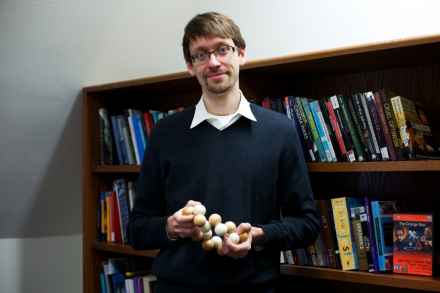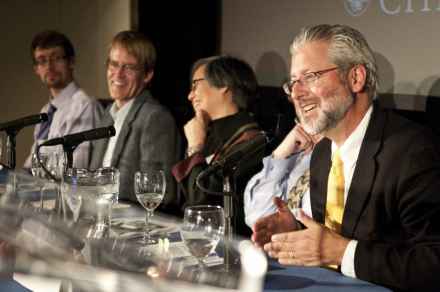Patrick Jagoda on Digital Storytelling and Video Games as Texts
Patrick Jagoda, Assistant Professor in English Language and Literature, was profiled in the Winter 2013 issue of Grey City. Jagoda, who has been teaching at UChicago since 2010, is affiliated with one of the eighteen inaugural faculty research projects sponsored by the Neubauer Collegium for Culture and Society. In the interview, Jagoda explains how the project "uses digital storytelling and game design to work through various health issues with youth, especially high-school aged youth...co-creating digital stories that have to do with everything from sexually transmitted infections to sexual violence to gender issues."
Jagoda also describes the importance of viewing video games as types of texts, stating that video games held as much importance as novels did during the late 20th and early 21st century. He also points out how receptive UChicago faculty members have been to his research, saying, "People want to share in the work and experience games that they might not otherwise be playing, or think about how categories central to a discipline such as English, like narrative or aesthetics, might help us think about this new form."
Read the entire interview here.


